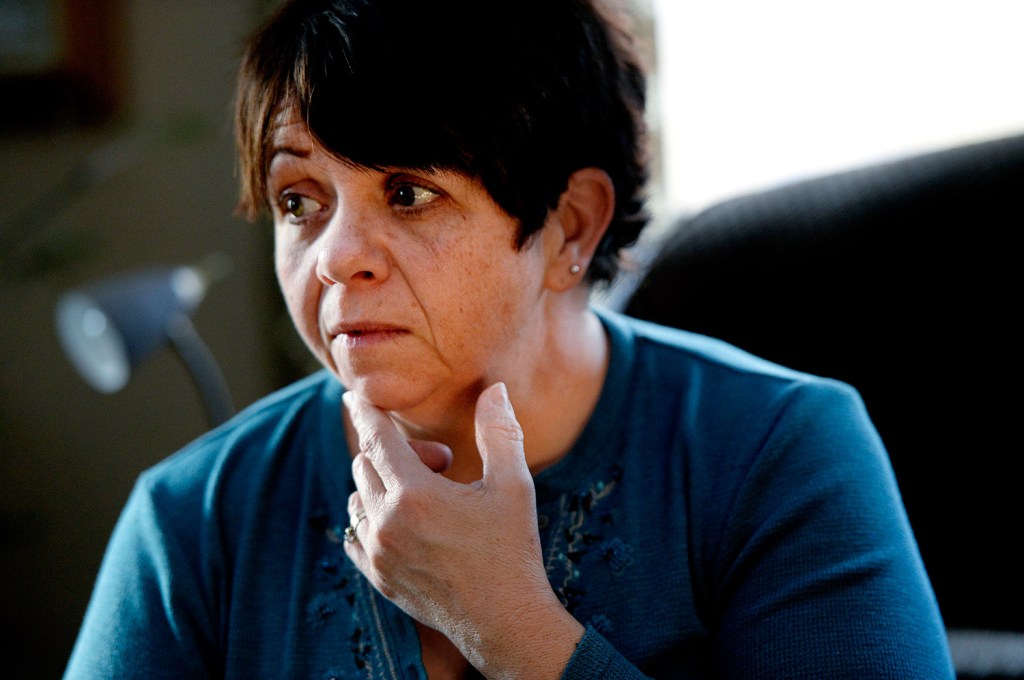WELLS — Lucie McNulty died alone. That much is certain.
What no one knew until Friday was that she had been dead for as long as 2½ years.
Neighbors had long wondered whether something might have happened to the woman with the distinctive, wild red hair who lived alone in a tidy white mobile home not far off Route 109.
Mail had been piling up for so long that the post office began returning it to senders. Property taxes went unpaid to the point where a lien had been placed on the home and foreclosure proceedings were imminent. Neighbors who knocked on the door never got an answer.
Although Wells police went to McNulty’s mobile home on Atkins Lane several times to conduct welfare checks, it wasn’t until Friday that they finally entered and found her body in the bedroom.
“It is a sad situation,” Wells police Lt. Gerald Congdon said Wednesday. “She was the type of person to always have her shades down and her curtains drawn. She was very much a loner.”
The state Medical Examiner’s Office ruled that McNulty died from ischemic cardiovascular disease, a narrowing of the heart arteries. If she were still alive, she would be 69.
Lois Martin, who lives two houses down from McNulty, called police at least once and said she knows of two other calls for welfare checks. Police did go to the mobile home, but no one ever answered the door and they didn’t investigate further.
Martin is disturbed that it took so long to find the body, but doesn’t fault police because she believes they were just following protocol.
“I know their hands were tied,” Martin said. “It’s just so sad to think that with all the people in this town, no one was concerned enough. No human being deserves to die like that.”
Barbara Schlichtman, a partner with the Maine Center for Elder Law, said she has never heard of a similar situation in Maine.
“My question for police would be: What did they need to feel like they could enter the woman’s home?” she said.
•••
Martin and other neighbors said McNulty moved into the mobile home around 2000. She had come from the Buffalo, New York area, where she taught music for many years. She had never married and did not have children.
At first, McNulty was friendly, inviting a neighbor in for drinks – even though it was 10:30 a.m. – but she soon became reclusive.
Martin said all of the residents on Atkins Lane were expected to pay a small sum each year for upkeep and plowing of the road, which was not maintained by the town. But McNulty refused.
After that, she stopped talking to people and people stopped talking to her.
“She was strange, but I guess we’re all strange in some way,” said Toni Jones, another neighbor. “Nothing specific, just strange. Like she didn’t quite know how to deal with people.”
Martin remembers seeing McNulty drive up and down the road to the mailbox.
“FedEx and UPS boxes were coming every day,” Martin said. “I think that must have been how she got her food and whatever else she needed.”
Other than those drives, McNulty didn’t leave the mobile home. The curtains on the windows were always drawn. Martin occasionally knocked on the door out of curiosity, but McNulty never answered.
•••
According to Congdon, police first went to check on McNulty in July 2013. She had been taken to the hospital by ambulance sometime that month and evidently returned a short time later, Martin said. She doesn’t know what the health issue was.
Police knocked on McNulty’s door, but no one answered.
“We never had any legitimate reason to force our way into the house,” Congdon said.
Although police departments vary on how they handle welfare checks, law enforcement officials say officers look for obvious signs of neglect, such as piled-up newspapers or mail, and would need a specific reason to enter someone’s home without a search warrant, such as the presence of blood or information that someone is in immediate danger.
Neighbors said they called police because they knew McNulty had cats and wondered if anyone had checked on them.
“For all we knew, she could have had a family member or friend take the cats,” Congdon said. “At that time, there wasn’t much we could do.”
In 2014, a former co-worker in New York contacted Wells police because he hadn’t heard from McNulty in some time and a Christmas card he’d sent her was returned. Congdon said the co-worker appeared to have been the only person with whom McNulty had regular contact.
After hearing from the co-worker, police again went to McNulty’s home, but nothing seemed out of order, he said. Police officers walked around the mobile home, but could not see in the windows.
“There was absolutely nothing to indicate anything was wrong. The power was still on,” he said.
Congdon said there was a possibility that McNulty could have been living somewhere else, possibly a nursing home. He didn’t say whether police ever checked nursing homes in the area, looking for her.
•••
Last week, police learned that McNulty hadn’t paid her property taxes in at least two years.
All of her mail was being returned to their senders. The phone had been disconnected.
Police contacted the Social Security office to see if McNulty was still receiving or cashing checks, but before they received an answer, they decided they had enough cause to enter the home.
“We decided that we had to get to the bottom of this one way or another,” Congdon said.
Police discovered McNulty’s body in her bedroom. The was nothing suspicious or unusual about her death, other than the length of time she had been dead.
Martin said she saw police cruisers parked outside the mobile home Friday and went to see what was going on.
“I spoke to a female detective who was carrying plastic bags out of the house and said, ‘You found her, didn’t you?’ The detective said, ‘Yes,’ ” Martin said. “Then I asked about her pets and the detective said, ‘She had pets?’ ”
Her cats were not found in the home.
•••
McNulty’s remains were taken to Bibber Memorial Chapel, which will handle funeral arrangements, Congdon said.
She had no known next of kin, but Congdon said police have contacted an attorney who previously represented McNulty.
The town will start the foreclosure process on the property this month, according to Jodie Sanborn, the town’s finance director. Taxes owed on the property total $2,740.09.
The town had placed a tax lien on McNulty’s home back in September 2014, a month after a notice was sent indicating her property taxes were overdue. Property owners have 18 months to pay off their back taxes before the town moves to foreclose on the property.
Outside the mobile home Wednesday, there was no police presence. The driveway was covered in snow. An old Chevrolet with no license plates was parked nearby. The curtains were drawn and mold could be seen growing on them. There were several planters and flower pots outside the mobile home that had long been neglected.
Martin said she doesn’t know why McNulty had so many flower pots, since she rarely went outside except to get her mail.
•••
It’s not unusual for someone who lives alone to pass away and their death to go unnoticed for days or even weeks.
But two years or more is unusual, said Schlichtman, the partner at the Maine Center for Elder Law.
In 2014, the mummified remains of a woman who had been dead for over five years were found in her Michigan home. The woman often traveled, so neighbors didn’t find her absence noteworthy. Her bills were automatically paid from her bank account and a neighbor regularly mowed the lawn. The post office collected her mail and nothing outside the home pointed to anyone in distress.
Police conducted a welfare check on her in 2007 but, finding no obvious sign of anything wrong, left. Her body was not found until the bank, which was foreclosing on the home, sent a worker to make repairs.
•••
Martin said that what bothers her the most is that McNulty was dead inside a home only steps from her own and she never knew.
“Whatever issues she had in her life, that’s just no way to go,” she said.
Martin wonders if she could have done more, pushed a little bit harder to find out if McNulty was OK.
Schlichtman said that despite the tragedy of McNulty’s death, she can see how such a situation could occur.
“But police could still have initiated adult protective services, which might have launched an investigation long before now,” she said.
On Wednesday, Martin remembered one of her first interactions with McNulty after she moved in. It’s something Martin has been thinking about since Friday, when she heard the news.
“She had called and asked sort of out of the blue, “You seem nice. Do you like me?’ ” Martin said. “I said, ‘I guess, but I don’t really know you.’ And then she said, ‘No one else likes me.’ ”
Send questions/comments to the editors.






Comments are no longer available on this story